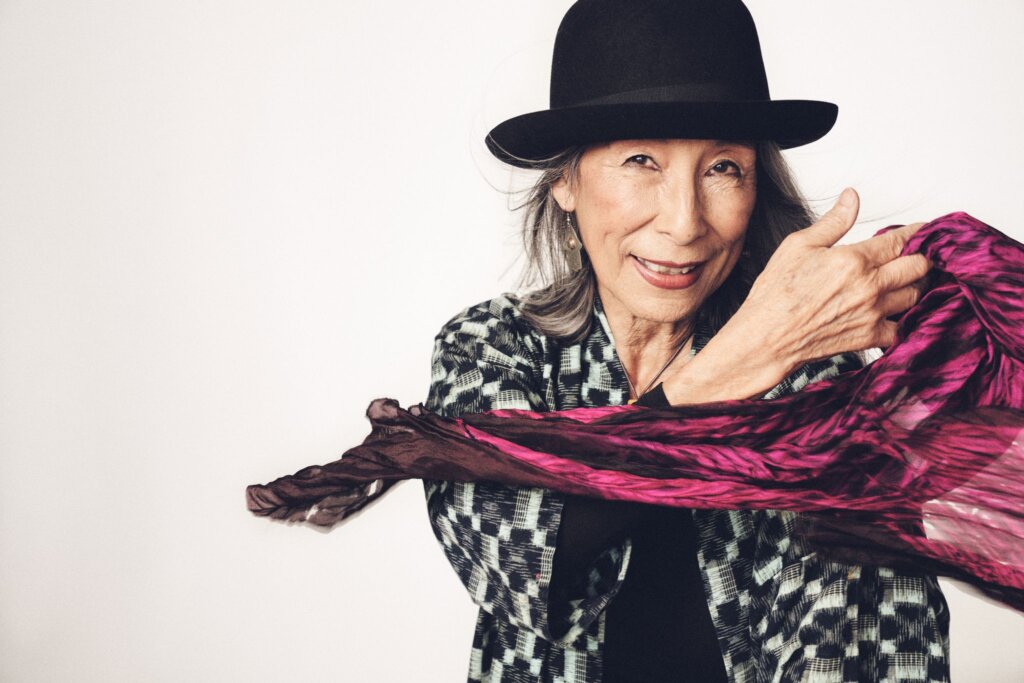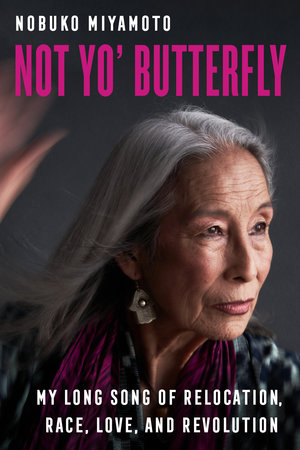

Smithsonian Folkways has just announced artist and activist Nobuko Miyamoto’s new album, 120,000 Stories. The album will release January 29th and is now available for pre-order.
From the Smithsonian Folkways press release:
120,000 Stories is…her first release since 1973’s seminal A Grain of Sand: Music for the Struggle by Asians in America, released by Barbara Dane’s Paredon label, which was the first album of its kind detailing the experiences of Asian Americans in the 20th century. 120,000 Stories continues that legacy; its title evokes the approximate number of people of Japanese ancestry who were incarcerated in camps run by the United States government during World War II. It collects new music, recorded with GRAMMY-winner Quetzal Flores in Los Angeles, that speaks to issues such as Asian American stereotypes and the Black Lives Matter movement, as well as music from A Grain of Sand, recordings of her late-1970s group Warriors of the Rainbow, and performances from various stage productions throughout the past several decades.
Miyamoto has shared the first single, “What Time Is It on the Clock of the World?,” an impassioned plea for climate justice. In the album’s track notes, Miyamoto says, “Grace Lee Boggs, activist/philosopher, often posed this question in her talks. If she were still here, she would be asking: if the world can stop in its tracks for COVID-19, why can’t we do it for Climate Change?”
Nobuko Miyamoto is also author of the forthcoming book Not Yo’ Butterfly: My Long Song of Relocation, Race, Love, and Revolution, a mold-breaking memoir of Asian American identity, political activism, community, and purpose.
Beginning with the harrowing early years of her life as a Japanese American child navigating a fearful west coast during World War II, Miyamoto leads readers into the landscapes that defined the experiences of twentieth-century America and also foregrounds the struggles of people of color who reclaimed their histories, identities, and power through activism and art.
Miyamoto vividly describes her early life in the racialized atmosphere of Hollywood musicals and then her turn toward activism as an Asian American troubadour with the release of A Grain of Sand—considered to be the first Asian American folk album. Her story intersects with Yuri Kochiyama and Grace Lee Boggs, influential in both Asian and Black liberation movements. She tells how her experience of motherhood with an Afro-Asian son, as well as a marriage that intertwined Black and Japanese families and communities, placed her at the nexus of the 1992 Rodney King riots—and how she used art to create interracial solidarity and conciliation.
Through it all, Miyamoto has embraced her identity as an Asian American woman to create an antiracist body of work and a blueprint for empathy and praxis through community art. Her sometimes barbed, oft-provocative, and always steadfast story is now told.
